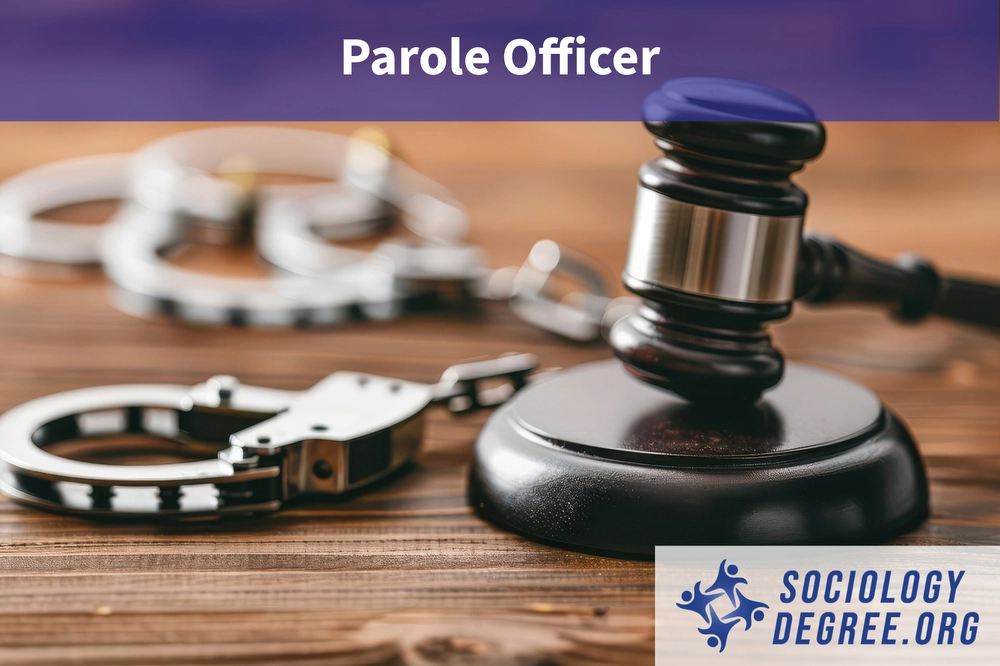A career as a parole officer offers the opportunity to make a meaningful impact by helping individuals reintegrate into society, ensuring public safety, and supporting personal rehabilitation. A sociology degree provides an excellent foundation for this role by equipping graduates with skills in understanding social systems, effective communication, and analyzing human behavior.
How to Become a Parole Officer
What is a Parole Officer?
A parole officer is a professional responsible for supervising individuals who have been released from prison on parole, ensuring they comply with the conditions of their release. Their primary goal is to help former inmates reintegrate into society while minimizing the risk of reoffending. Key duties of a parole officer include:
- Monitoring parolees through regular meetings and home or workplace visits.
- Assisting parolees in finding employment, housing, or educational opportunities.
- Providing referrals to community resources, such as substance abuse programs or counseling.
- Writing reports and maintaining detailed case files.
- Ensuring that parolees adhere to the conditions of their release, which may include curfews, drug testing, or avoiding certain individuals or areas.
Parole officers play a vital role in both public safety and rehabilitation, striking a balance between accountability and support.
Why Get a Sociology Degree for a Parole Officer Career?
A degree in sociology provides an excellent foundation for a career as a parole officer. Sociology is the study of society, social relationships, and institutions. This background helps aspiring parole officers understand the systemic factors that influence criminal behavior and the challenges of reintegration.
Key reasons why a sociology degree is suitable for this career include:
- Understanding Social Systems: Sociology courses often cover topics like criminology, social inequality, and community development, which are directly applicable to parole work.
- Interpersonal Skills: Sociologists study human behavior, which equips parole officers with skills to communicate effectively, mediate conflicts, and build trust with parolees.
- Research and Analysis: Sociology programs emphasize data analysis and research, preparing future parole officers to assess trends, track progress, and make evidence-based decisions.
To further enhance career readiness, students may consider internships or volunteer work with correctional facilities, social service agencies, or community outreach programs.
Degree Pathways
A bachelor’s degree in sociology is typically the minimum requirement for becoming a parole officer. However, some positions, particularly at the federal level or those involving specialized caseloads, may require additional education or experience.
- Bachelor’s Degree: A BA or BS in Sociology with coursework in criminology, psychology, and social work is often sufficient for entry-level positions.
- Master’s Degree: Earning a master’s degree in sociology, criminal justice, or a related field can open doors to advanced roles or supervisory positions.
- Alternative Degrees: Degrees in criminal justice, psychology, or social work can also lead to a career as a parole officer. Combining these with sociology can provide a well-rounded perspective.
Do I Need Any Credentials or Certifications?
While most states do not require parole officers to hold specific certifications, some jurisdictions may have unique requirements. Common steps include:
- Training Academy: Many states require new parole officers to complete a training program that covers laws, procedures, and fieldwork.
- Certification: Depending on the state, certification as a peace officer or probation officer may be necessary.
- Ongoing Education: Some states mandate continuing education to maintain credentials.
For detailed requirements, check with your state’s Department of Corrections or equivalent agency.
Parole Officer Salary
According to the U.S. Bureau of Labor Statistics (BLS), the median annual salary for probation officers and correctional treatment specialists (a category that includes parole officers) was approximately $60,250 in 2023. Salaries can vary based on several factors:
- Location: Urban areas or regions with higher costs of living often offer higher salaries.
- Experience: Entry-level parole officers earn less than those with years of field experience.
- Education: Advanced degrees or specialized training can lead to higher-paying roles.
For additional salary information, visit https://www.sociologydegree.org/resources/salary/
Why a Sociology Degree is Ideal for an Parole Officer Career
A sociology degree offers a strong foundation for a fulfilling career as a social scientist. By understanding societal trends, research methodologies, and data analysis, sociology graduates are well-equipped to conduct research and inform policies that impact communities. Combining academic training with relevant internships, certifications, and technical skills can position aspiring social scientists for success in this research-driven and impactful career.

